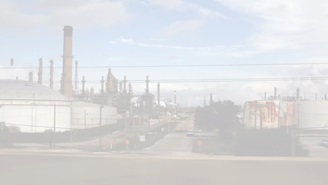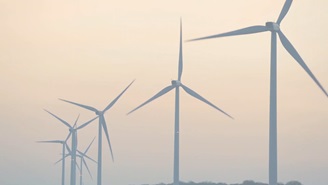How Climate Gentrification is Increasing Real Estate Costs and Socio-economic Disparities
Climate gentrification is an emerging concept describing how land with greater resiliency against intensifying physical impacts of climate change becomes more desirable and valuable.[1] It catalyzes fast and visible socio-economic transformation in communities.
Sustainable Finance Disclosure Regulation: An Industry Game-changer
In recent months, the Sustainable Finance Disclosure Regulation (SFDR) has been sparking almost as much debate as the EU Taxonomy – both cornerstone regulations of the EU Sustainable Finance Action Plan. With the SFDR set to redefine ESG disclosures and make a significant impact on financial market participants in Europe, the short timeline and ambiguity on several vital details are creating confusion and concern in the industry. The risk of organizations not being able to comply in time is still present, despite the announced delay in timelines for the technical standards, as is the risk of high financial and operational costs for the industry.
A Pipeline for Strategic ESG Risk Mitigation
Given the ESG impacts often associated pipeline projects, it is reasonable to say that pipelines have been a source of controversy in North America and around the world. In 2020 alone, several major pipeline projects face high levels of public and community-based opposition; with consequences including widespread protests (as was the case for TC Energy’s Coastal GasLink project at the beginning of this year) and large-scale regulatory and legal challenges (as seen currently with the Dakota Access Pipeline).
ESG at a Reasonable Price in China
Over the last decade, portfolio managers worldwide have been increasingly convinced that incorporating environmental, social, and governance (ESG) criteria into investment decisions could provide better risk-adjusted returns. As a result, responsible investing, has moved from a niche activity to the mainstream. As more capital shifts to ESG products, there have been discussions regarding the risk of an ESG bubble as stocks with good ESG scores have enjoyed price appreciation and sometimes go beyond fundamentals[i].
Building Back Better for the Next Normal
‘Build back better’ has become the new mantra for post-COVID-19 hopes and ambitions. As people, companies and governments are coming to terms with the crisis and starting to consider the post-pandemic world, many are realizing that going back to how things were is neither possible nor desirable. Just like disruptive technologies throughout modern history have swept away what humanity thought was the best or only solution and replaced it with something superior, the disruption brought on by COVID-19 has also opened the door for making and accepting some long-overdue changes. To truly leverage the opportunity to correct the destructive course on many fronts, responses to the pandemic must involve going beyond adapting to the new normal and focus on shaping what we want the next normal to be. Investors can play an important role in this transition by aligning their strategy and active ownership with progressive long-term objectives.
Regulatory Standards and COVID-19: Is Oil and Gas Being Given a Hall Pass on ESG?
Globally, oil and gas companies are weathering a storm like no other in their history. Although volatility seems to have settled somewhat since the early months of 2020 (when the Russia-Saudi Arabia oil price war experienced its most heated moments yet), cost-cutting and debt borrowing continues to plague the industry as the vast majority of COVID-19 related restrictions remain in place worldwide.
How China’s Electric Vehicle (EV) Policies have shaped the EV market
As CO2 emissions are inherent to Internal Combustion Engine Vehicles (ICEVs), Electric Vehicles (EVs) are widely considered to be the logical alternative towards realizing zero emissions. With the continuation of ongoing technological refinement and years’ of heavy investment, EV manufacturers have significantly upgraded the performance of their products and improved economies of scale making EV production more economically feasible allowing for EVs to become a more widely considered consumer choice. Improving economies of scale, in both the EV manufacturing and the recycling of decommissioned batteries along with the grid’s transition towards renewable energy will make the positive impacts of EVs increasingly undeniable.
The Race to Net Zero: Decarbonization Commitments in the Oil & Gas Industry
Recent reports concerning record decreases in global greenhouse gas (GHG) emissions due to the COVID-19 pandemic have spurred hope for a “green shift” in our global economy, post-pandemic. The importance of this shift cannot be understated, given that capital investments made within the next five-to-ten years will determine the world’s carbon pathway to 2050 and beyond.
Airlines Post-COVID-19: The Challenges to a Climate-Friendly Recovery
Planes grounded, borders closed and passengers staying at home: the past months haven’t been easy for the airline industry. COVID-19 has led to the deepest crisis ever in the history of the sector.[i] Airlines are in dire need of cash to recover, while at the same time the industry is also expected to adapt and prepare itself for the more critical crisis ahead that is climate change. Despite the slowdown of air travel, long term prospects of mitigating carbon footprint of the industry are not clear. Carbon commitments supported by comprehensive programs are in place, nonetheless, our research suggests that existing measures may not be sufficient to curve down emissions and mitigate climate change.
Responsible Cleantech: The Processes Behind the Products
The growth of the cleantech industry seems resilient from an economic perspective. For it to maintain its social license-to-operate, however, it will also need to formulate answers to the environmental and social challenges throughout its value chains.
Sustainable Fund Labels: Diverse Definitions of Sustainability
Sustainable financial products are marked with an increasingly large list of tags, from green, sustainable, socially responsible to thematic ESG, water, carbon or impact funds, and not every investor might know how to make sense of these terms. Sustainable fund labels can be one way to signal to the market that the fund has a dedicated responsible investment strategy.
ESGarp Scores: In Search of Reasonably Priced, Low ESG Risk Stocks
The COVID-19 pandemic is likely to further amp up the market’s interest in ESG investment research. It’s not just that ESG funds and indices have generally outperformed their non-ESG counterparts since the COVID-19 sell-off began in mid-February.[i] It’s also that the pandemic itself has drawn attention to ESG issues ranging from biodiversity and habitat loss to employee relations and supply chain management.
2020: The Year of the Flexitarian
The Economist named 2019 the year of the vegan; however, veganism is one part of a much greater trend away from animal proteins. While vegetarianism also continues at a steady growth rate, it is the flexitarian – i.e. traditional meat eater who makes a conscious effort to reduce their meat intake – that is having a notable impact on the market. This has been further accelerated by COVID-19 and the disruption to the fresh meat industry.
Future of Cement: Low-Carbon Technologies and Sustainable Alternatives
At a time when climate change has caught global attention and efforts are being made to meet the UN sustainable development goals, however concrete – the most widely used man-made material on earth – is a significant source of carbon dioxide (CO2) emissions and often overlooked. Cement, a key ingredient in concrete, accounts for about 7% of global CO2 emissions and is the second-largest industrial emitter of CO2 after the iron and steel industry [i]. The cement production process is responsible for 95% of concrete’s carbon footprint. Under the International Energy Agency’s sustainable development scenario, cement producers will need to reduce their carbon intensity at an annual rate of 0.3% per tonne of cement produced up to 2030 [ii]. With carbon emission regulations tightening globally to meet the 2-degree scenario (2DS) targets, cement companies that fail to adopt low-carbon processes and improved energy efficiency could face risks in the form of potential fines from non-compliance and lost opportunity costs by failing to innovate processes.
Climate Action, Human Health and Responsible Investing
This year, we mark Earth Day under a pandemic. To date, casualties of the novel coronavirus include more than 170,000 deaths, ongoing disruptions to healthcare systems and a deep economic downturn. As we face the first global recession in a decade, Earth Day – the theme of which this year is climate action – serves as a reminder for investors to reflect on how their investment activities relate to social and environmental health concerns.
Tackling the Climate Crisis: Mobilizing the Transition
As we mark the 50th Anniversary of Earth Day, we highlight the need for a collective effort in order to combat the impacts of climate change. In this blog, we explore the important role that investors play in mobilizing the transition to reduce emissions and how sustainable solutions can support this.
Coronavirus and the Localization of Supply Chains
One of the lasting impacts of the COVID-19 pandemic will surely be a transformed understanding of supply chains. As we touched on in earlier posts[i] in our coronavirus blog mini-series, we expect the pandemic to catalyze a range of efforts by management teams to better understand the vulnerabilities of their supply chain. While executive teams closely track their tier 1 suppliers, many are unaware of the full scope of their global supply chain. Bain & Co recently estimated that up to 60% of executives have no knowledge of the items in their supply chain beyond the tier 1 level.[ii]
EU Sustainable Finance Action Plan: Final Taxonomy Report Published and Other Developments
The highly anticipated final report by the TEG (Technical Expert Group) on the EU Taxonomy was published in early March, followed by a stakeholder information session. You can read our blog post on last fall’s developments here.



















